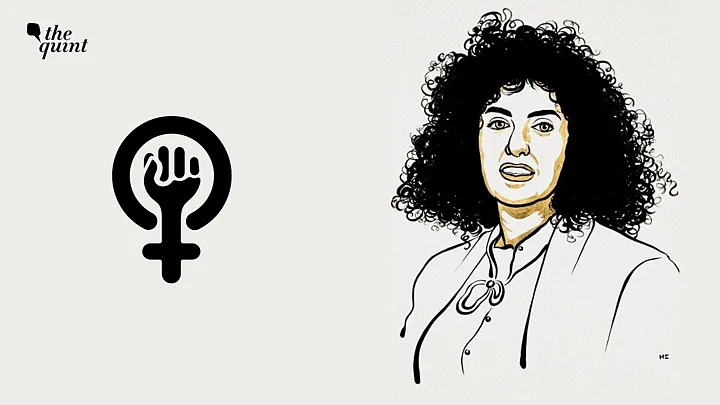Zan, Zendegi, Azadi. Women, Life, Freedom.
The popular protest slogan from last year’s uprising against the Iranian regime echoed worldwide on Friday, 6 October, when Berit Reiss-Andersen, the chair of the Norwegian Nobel Committee, announced jailed Iranian rights activist Narges Mohammadi as the winner of Nobel Peace Prize 2023.
Calling her the “undisputed leader” of the movement, Reiss-Andersen said,
“This prize is first and foremost a recognition of the very important work of a whole movement in Iran with its undisputed leader – Narges Mohammadi.”
Mohammadi’s win comes at a time in Iran when the country has been on the edge. Iran recently marked the one-year death anniversary of 22-year-old Kurdish woman Mahsa Amini, which had sparked widespread protests.
Amini was reportedly beaten to death under the custody of the country’s notorious morality police purportedly for not wearing her headscarf properly.
Now, in a similar account of what transpired during Amini’s death, another Iranian girl, 16-year-old Armita Geravand, was allegedly beaten into a coma recently after a claimed encounter with hijab police on the Tehran metro.
According to Iranian state media, Geravand is still in a coma as security forces have been deployed around the heavily guarded Fajr hospital in the capital city.
Intimidation by Authorities Can’t Dim Narges’s Dreams
Mohammadi, who is currently serving a 10-year prison sentence in Tehran’s notorious Evin prison on accusations of "spreading state propaganda", has faced arrests and prosecution for decades.
For her activism and advocacy to promote human rights in Iran, Mohammadi has been arrested 13 times, convicted five times, sentenced to over 30 years in prison, and 154 lashes.
Since Amini’s death on 16 September 2022, Iranians marched against the regime, as women led the popular protests – and, despite serving her ongoing prison sentence, Mohammadi has continued to support the protesters.
In an “unauthorised telephone interview” with The New York Times earlier this year, Mohammadi said,
“I sit in front of the window every day, stare at the greenery, and dream of a free Iran. The more they punish me, the more they take away from me, the more determined I become to fight until we achieve democracy and freedom and nothing less.”
A report in The Times revealed that Mohammadi by then hadn’t spoken to her 16-year-old twins for over a year and hadn’t held her children in her arms for over eight years. Her activism has cost her “her career, family, and freedom.”
Mohammadi’s defiant responses sent from the prison in support of the “Women, Life, Freedom” movement led to the authorities revoking her telephone and visitation rights. But intimidation and threats have not dimmed Mohammadi’s determination to fight for the rights of the oppressed, especially for women – not only in Iran but also Afghanistan.
As Afghan women face oppression under the rule of the Taliban, Mohammadi’s Nobel Peace Prize has reignited hope.
'Women's Fights Know No Borders'
Hoda Khamosh, an Afghan women’s rights activist who fled her country in 2022 due to threats from the Taliban, told The Quint,
“I congratulate Narges Mohammadi and hope for her release from the prison of the Islamic Republic of Iran. She is not just the voice of a nation but the voice of thousands of oppressed women who stood up against atrocities. And I believe that women fight with full awareness and the fight knows no borders."
Khamosh added, "She (Mohammadi) is not just the voice of Iran, the voice of Afghanistan, and even the voice of women oppressed around the world today."
Protesters and activists who spoke to The Quint said Mohammadi’s Nobel Peace Prize win has brought back the spotlight on the ongoing human rights violations against Iranian women.
From the passing of the new stringent mandatory hijab law to the alleged violence against hijab violators, Iranian women continue to face brutal oppression at the hands of the Islamic Republic’s security forces.
In a harrowing account addressed to the BBC from the Evin prison in December 2022, Mohammadi revealed that detained female protesters were being sexually and physically abused.
Human rights organisations have reported that over 500 protesters have been killed in the past year during anti-government protests, including 70 children.
Among those killed was 62-year-old Minoo Majidi. Majidi’s daughters, Roya and Mahsa Piraei, have continued to raise their voices against the ongoing oppression of women in Iran.
On Mohammadi's, an overjoyed Mahsa told The Quint,
“Congratulations to Narges Mohammadi, the teacher of resistance and resilience. Congratulations to women. Congratulations to freedom-seeking Iranians. Zan, Zendegi, Azadi.”
Reiss-Andersen and global leaders, including US President Joe Biden, have urged the Iranian authorities to release Mohammadi in time to receive her Nobel Peace Prize in person on 10 December at the Oslo City Hall.
But activists fear Mohammadi’s release is highly unlikely, as the Islamic Republic released a statement condemning the honour bestowed on her, calling it "a political move".
But her fight continues – and so does the fight of women like her.
(The author is an independent journalist based out of Paris. She is an alumna of University College Dublin and writes about international conflict and war.)
(At The Quint, we question everything. Play an active role in shaping our journalism by becoming a member today.)
